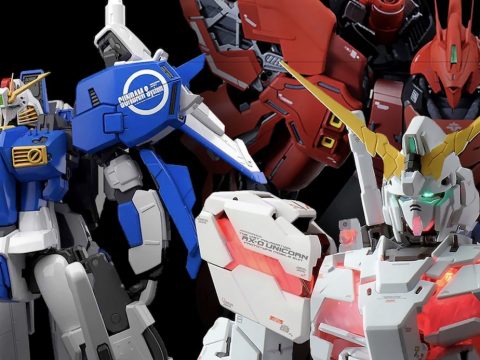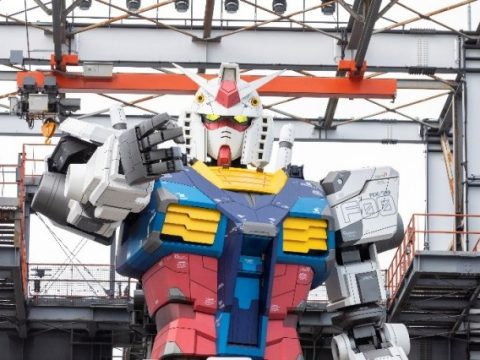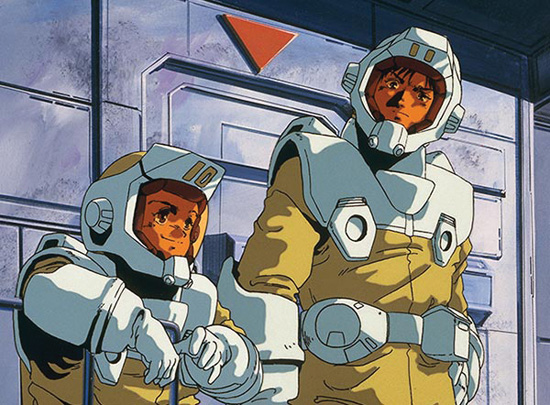
Gundam Wing served as many Americans’ first exposure to the Gundam franchise, but it was the original 1979 series and its Universal Century (UC) timeline that started it all in Japan. With Right Stuf now releasing a string of Gundam series on home video, it’s a fantastic time to revisit UC Gundam, particularly one of my favorites: 0080: War in the Pocket.
When War in the Pocket was released in 1989 it was a pretty big departure from Gundam tradition—both the first major direct-to-video release in the series and the first to not be directed by creator Yoshiyuki Tomino—but it’s not hard to see why Sunrise continued making spinoffs in the years that followed. It’s the most concise, clear-minded expression of Gundam‘s antiwar message I’ve ever seen, with a grounded, self-contained story and none of the esoteric space philosophy of Tomino’s work.
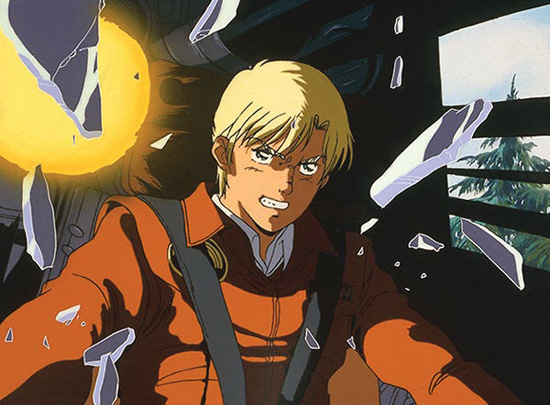
War in the Pocket is just six episodes long, and takes place during the final days of the year UC 0079, as the One Year War between the Earth Federation and Principality of Zeon (the setting for the original series) is coming to a close. As such, there are occasional references to Amuro Ray and the White Base from the original, as easter eggs for fans. Knowing this context helps in understanding the political climate of the series, but it’s not directly explained in War in the Pocket, making this a questionable starting point for newcomers.
Like the beginning of the original series, the OVA focuses on a Zeon special forces unit infiltrating a neutral space colony in search of a secret Federation mobile suit, but this is no grand war story. Instead, War in the Pocket focuses almost entirely on the serendipitous friendship between Alfred, a 10-year-old boy who delights in playing war, and Bernie, one of the Zeon soldiers. As Al gets more involved in the Zeon plot and Bernie starts to fall for Al’s neighbor Christina, who works for the Federation, the lines between friend and foe start to blur. The original Gundam transformed giant robot anime by addressing the moral ambiguity of war, but War in the Pocket takes it a step further by showing a world where everyone, from commanders to grunts to civilian children, are complicit, often unwittingly, in their own war-torn misery.
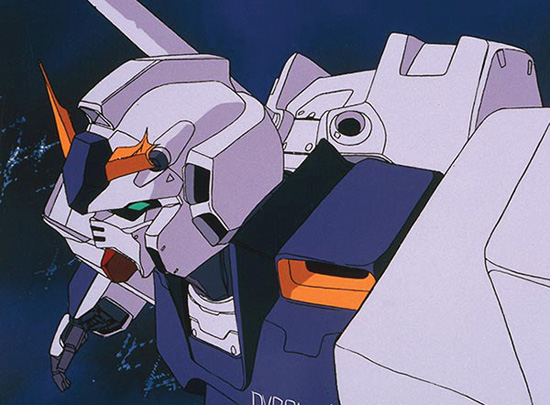
This is largely thanks to a restrained screenplay from Gainax’s Hiroyuki Yamaga (Wings of Honneamise). War in the Pocket is all about little moments: Al’s naïve joy as a mobile suit battle almost destroys his school, Bernie’s hesitation as he waves goodbye to Christina. The incredibly detailed character designs make these all the more poignant. They’re the work of Macross’s Haruhiko Mikimoto, but it’s the animation directors, including Toshiyuki Kubooka (Berserk movie trilogy) and Toshihiro Kawamoto (Cowboy Bebop) who miraculously maintain their delicate beauty in motion. Mikimoto, Kubooka, and Yamaga worked together on Gunbuster one year earlier, and in some ways, despite still being a Sunrise production, War in the Pocket reflects the self-critical viewpoint of the otaku-turned-filmmakers at Gainax. Gundam began as a vehicle for selling toys, so its critique of war was always at odds with its fetishization of the weapons of war. War in the Pocket provides no easy way to reconcile this, and ends in possibly one of the bleakest, most devastating moments in anime history.
In keeping with this critical view of the giant robot genre, the Gundam Alex and the Kämpfer, the two prominent mobile suits introduced in the OVA, appear for a small fraction of the screen time. The Alex is mostly an obligatory 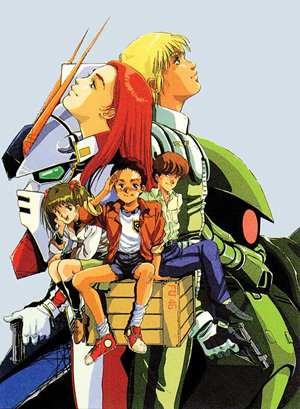 variation on the original Gundam, though the Kämpfer diverges more significantly from the classic Zaku. What sticks out, however, is the mechanical animation. The robots lurch across the battlefield, metal crunching against metal, and crush cars, buildings, and people underfoot. War in the Pocket largely leaves behind the lofty space battles of other Gundam series for the collateral damage of war within a residential space colony.
variation on the original Gundam, though the Kämpfer diverges more significantly from the classic Zaku. What sticks out, however, is the mechanical animation. The robots lurch across the battlefield, metal crunching against metal, and crush cars, buildings, and people underfoot. War in the Pocket largely leaves behind the lofty space battles of other Gundam series for the collateral damage of war within a residential space colony.
0080: War in the Pocket is Gundam as it was meant to be. It’s a short, poignant story of lost innocence in a world torn in two, and effectively makes the case that in war, we are all victims, whether or not we’re holding a gun. It’s the kind of story that will stick with you long after you finish watching it, because it speaks to something far bigger and far more real than cartoons and plastic robots. Recommended.
studio/company: Nozomi Entertainment/Right Stuf
available: Now
rating: Not Rated


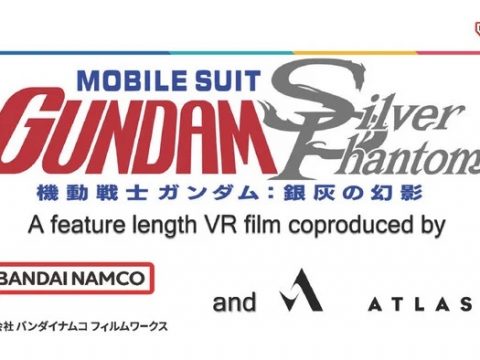
![Yokohama Station SF [Manga Review] Yokohama Station SF [Manga Review]](https://otakuusamagazine.com/wp-content/uploads/2023/11/Yokohama-Station-SF-v2-crop2-480x360.jpg)
![Manner of Death [Review] Manner of Death [Review]](https://otakuusamagazine.com/wp-content/uploads/2023/10/manner-of-death-v2-crop-480x360.jpg)
![Origin [Review] Origin [Review]](https://otakuusamagazine.com/wp-content/uploads/2023/10/origin-10-crop-480x360.jpg)
